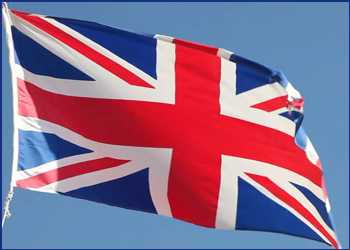
UK Inflation Highest Since 1992
UK consumer price inflation accelerated at the fastest pace in nearly 30 years in January, lifting expectations for another rate hike next month.
Consumer price inflation rose slightly to 5.5 percent in January from 5.4 percent in December, the Office for National Statistics said Wednesday. The rate was forecast to remain unchanged at 5.4 percent.
This was the highest inflation rate in the National Statistic series, which began in January 1997, and it was last higher in the historical modeled series in March 1992, when it stood at 7.1 percent.
At the February rate-setting meeting, the Bank of England expected inflation to peak at around 7.25 percent in April. The bank has raised its rate by 15 basis points in December and 25 basis points in February.
Inflation will rise to a peak of 7.9 percent in April, Paul Dales, an economist at Capital Economics, said. This will add more pressure on the BoE to raise interest rates rapidly.
The economist said interest rates will rise from 0.50 percent now to 1.25 percent this year and to 2.00 percent next year.
James Smith, an ING economist said, another upside surprise to UK inflation will help cement expectations for another 25 basis point rate hike from the BoE in both March and May.
On a monthly basis, consumer prices fell 0.1 percent, in contrast to the 0.5 percent rise in December, data showed. Prices were expected to drop 0.2 percent.
Core inflation that excludes energy, food, alcoholic beverages and tobacco, advanced to 4.4 percent from 4.2 percent in the previous month. Economists had forecast an annual rate of 4.3 percent.
The annual consumer price inflation was largely driven by housing and household services and transport.
Another report from ONS showed that factory gate price inflation increased unexpectedly to 9.9 percent in January from 9.3 percent in December. Prices were expected to gain 9.1 percent.
Meanwhile, input price inflation slowed to 13.6 percent from 13.8 percent a month ago. The rate was forecast to drop more markedly to 13.1 percent.
On month, output prices were up 1.2 percent, which was bigger than the 0.3 percent rise in December and economists’ forecast of +0.6 percent.
Month-on-month, input prices gained 0.9 percent, in line with expectations, following a 0.1 percent rise in December.
House price inflation rose slightly to 10.8 percent in December from 10.7 percent in November, the ONS said in a separate communiqué. The average UK house price was GBP 275,000.
London continued to be the region with the lowest annual growth at 5.5 percent.
Source: Read Full Article